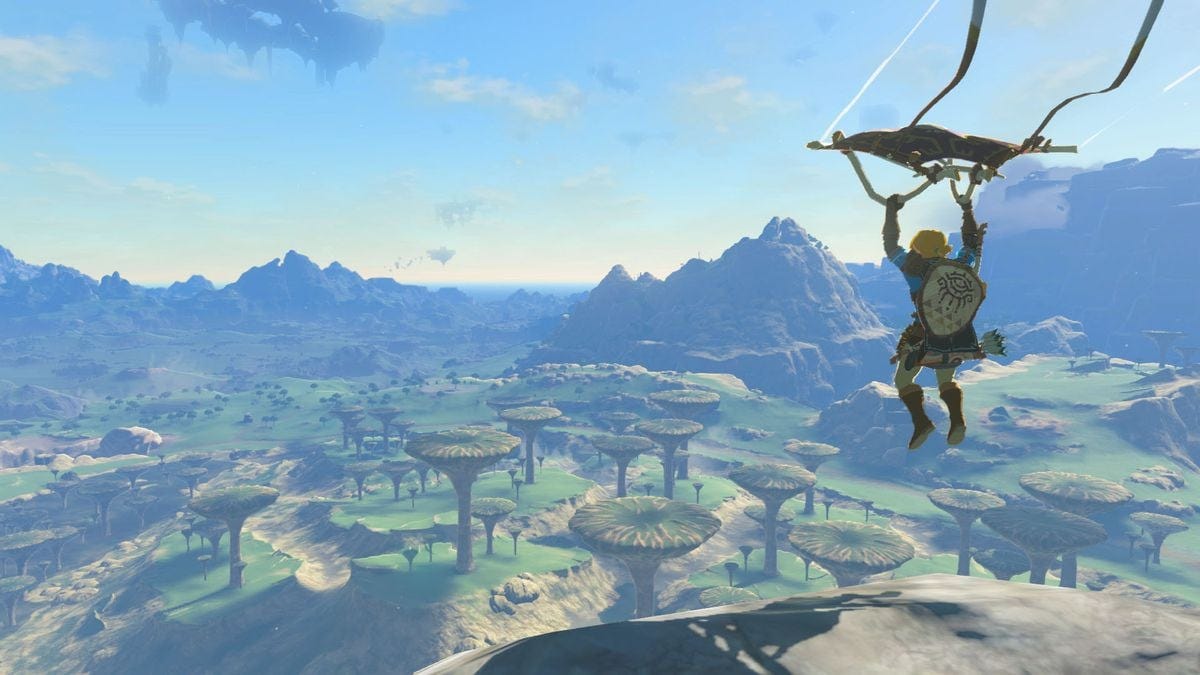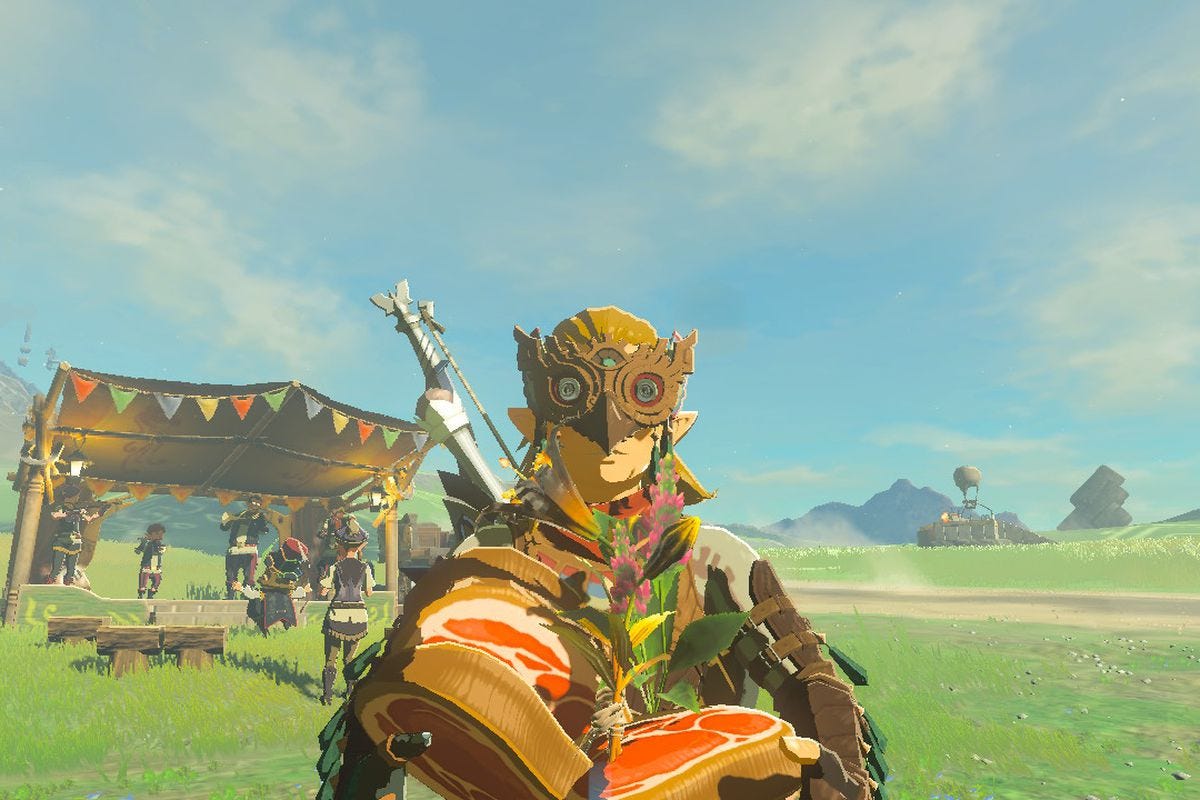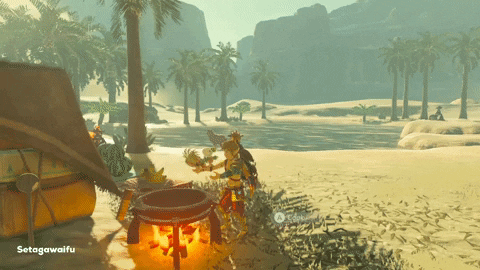**Sorry for ghosting you all last week—I was on vacation and didn’t tell you all! Mea culpa, my loves. Also yes this week’s mini-essay is about the new Zelda but no, there are no game spoilers here.**
Gaining a thorough understanding of a new culture isn’t easy. There’s just too much to learn.
That’s why so many people like to understand a culture through its food. It’s approachable! We all eat! I can learn a lot about a culture’s history, values, agriculture, and geography via food. There’s a reason why Anthony Bourdain and now Padma Lakshmi have made compelling TV about this very subject matter. It’s a less intimidating way to learn about a culture in a manner that feels digestible (pun intended) and familiar.
But what if I applied this to video game cultures? Specifically, this year’s GOAT, The Legend of Zelda: Tears of the Kingdom? After all, food and cooking are an integral part of the game. What if I applied this logic of understanding a culture to understanding the food available in a video game?
Now, some of you may be asking a valid question: Sarah, what the fuck does this have to do with anxiety? Look, I promise you, it does. And yes, I’m aware that this wildly expansive iteration of a save-the-princess game franchise has been written about ad nauseum.
For the uninitiated, Zelda games are a culture unto themselves, one that spans decades, video game consoles, countries, generations, the works. There are recurring characters, inside jokes galore, systems of belief, a entire new history to learn. The learning curve is steep. But what if food made it, I don’t know, slightly less steep?
The long and short of it: in every game, Princess Zelda of the kingdom of Hyrule is kidnapped or disappears or whatever. In every game you play as Link, a short blonde swordsman who canonically wears a green Peter Pan-ish get-up, who must fight to free Zelda before she’s inevitably gone again in the next game.

But despite having written about Zelda before, the truth of that matter is: I’ve never played a full game myself. As a kid, I played the game at friends’ houses, usually on an older sibling’s console, and was horrible at it. So I assumed I would always be horrible at it.
Fast forward to the month of May in the year of our Lord 2023, and my husband, a Zelda mega-fan, has had “ZELDA DAY” on our shared calendar for six months. He was enjoying getting immersed into the land of Hyrule, and after spending a lot of time watching him without really understanding what he was doing, I decided to try for myself.
This was, in no small part, due to the cooking gameplay.
I love a game with some cooking and/or foraging gameplay. Look no further than one of my favorites of all time, Stardew Valley. Collect as many fiddlehead ferns as you can that you can transform them into a fancy risotto? Sign me UP. That is stupid satisfying to me.
I love to collect and/or complete all of anything, I find it soothing to gather all of something. This is probably related to my love of binging books, TV shows, the works. The world might be on the brink of imminent climate collapse but I’ve gathered all the Hyrule Herb in this grove I just stumbled upon on my way to a stable? All is right with the world.
Lo and behold, a major part of Zelda in addition to extensive combat and puzzles and problem solving involves traveling all around Hyrule foraging for berries and herbs.
Tears of the Kingdom and its predecessor, Breath of the Wild, both feature massive, sweeping maps that can be explored, large enough to keep the player occupied for hours with regions and microclimates galore which lend themselves to different food items. Every region has its own indigenous people/races with their own food ingredients and meals for Link to try. End up in the Gerudo Desert, a place known for its extreme heat and electrical phenomenon? A bit of foraging and you’ll find plants as well as herbal remedies with anti-electricity properties.
That’s right, Link is shopping and eating locally. He’s a farm-to-table hipster kinda guy.

Ok Sarah, this is nice and all, but who cares? Because as much as Zelda is a cultural institution all its own, the world within the games can be nearly as culturally complex. The answer to Link’s many problems and challenges can often be found within the natural world and local cultures surrounding him.
Keep reading with a 7-day free trial
Subscribe to Nervous Wreckage to keep reading this post and get 7 days of free access to the full post archives.





